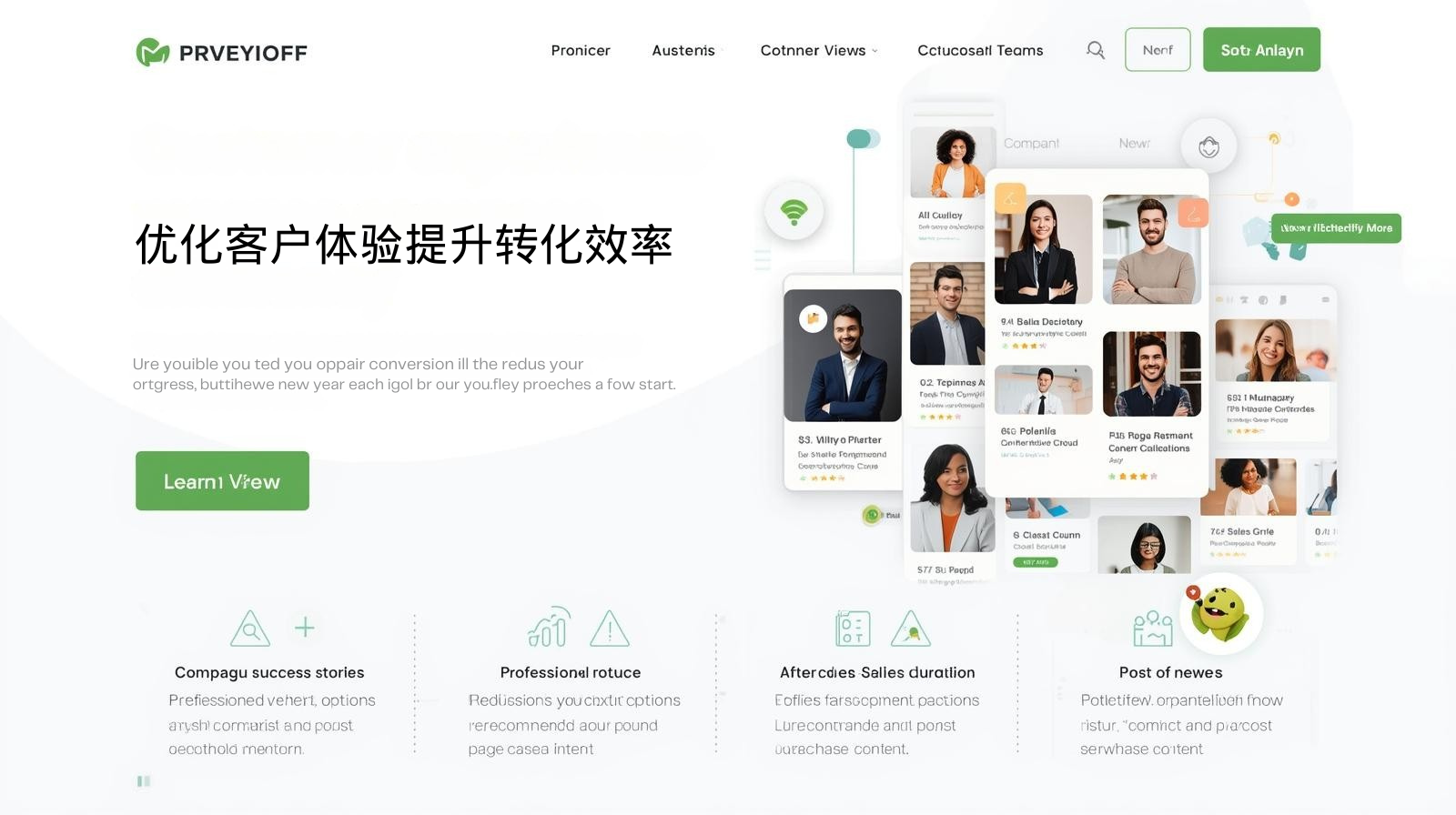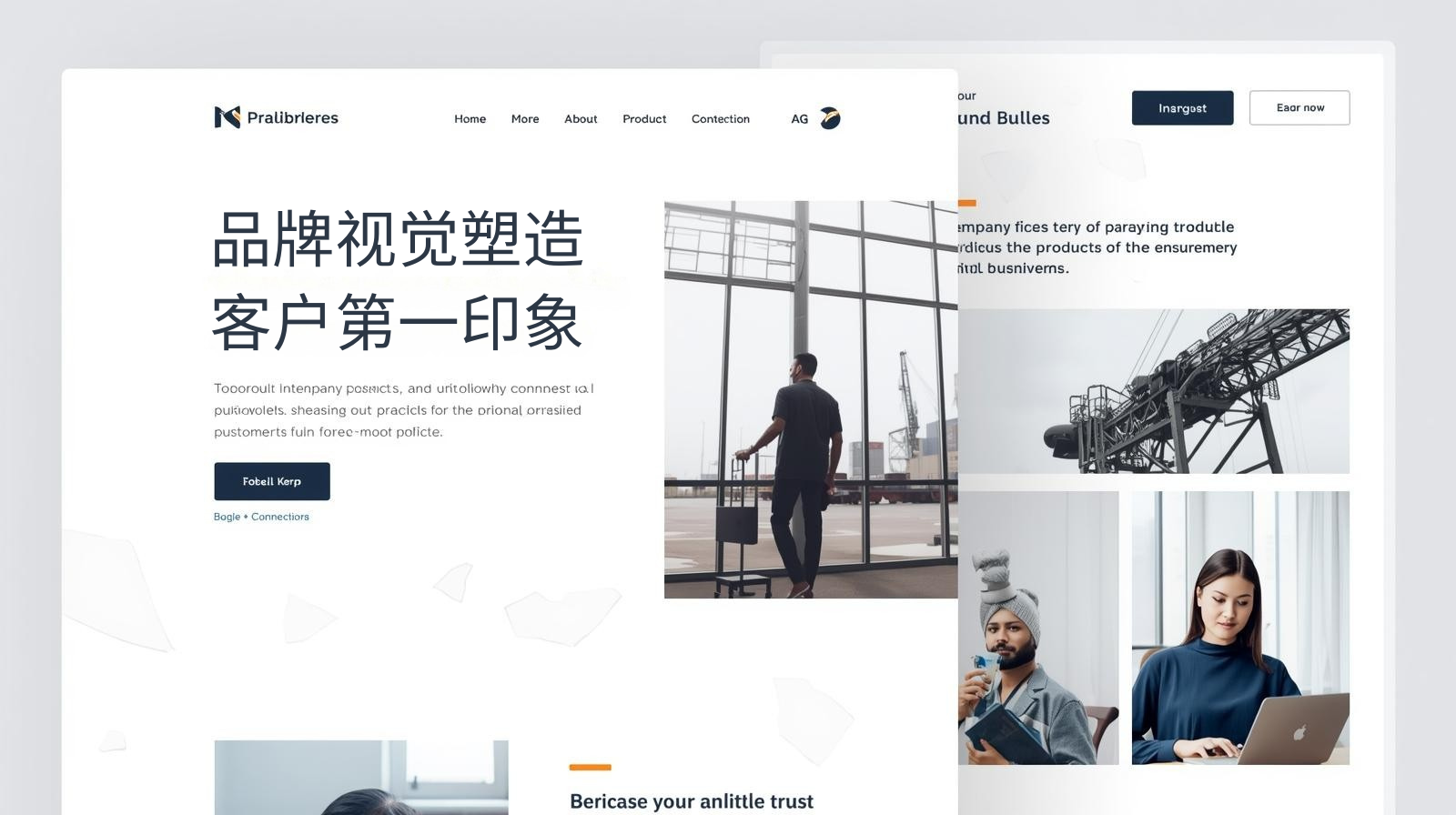1. Brand vision shapes the customer’s first impression
In overseas markets, a customer's first impression of a company often determines their willingness to cooperate. Through professional website development for international trade, companies can showcase a unified brand logo, product style, web design, and corporate credentials, giving customers a sense of professionalism and reliability from the moment they browse. According to a report by the International Trade Center (ITC) , a strong visual brand presentation can enhance potential customers' trust and increase the likelihood of initial inquiries. Through website development for international trade, companies can establish a sustainable brand image, ensuring that customers form a clear brand perception upon visiting the website.
2. Content Marketing Enhances Professional Trust
Content marketing is a crucial component of brand building. Companies can leverage their foreign trade websites to publish product information, industry case studies, user guides, and customer testimonials, creating a comprehensive content ecosystem. This not only helps improve SEO inclusion but also fosters trust in customers by providing valuable information. According to data from the China Electronic Commerce Association (CECA) , systematic content marketing can increase customer conversion rates by 20%-30%. Integrating this with foreign trade intelligence to generate targeted articles and email content can further expand brand influence and enhance customer retention.
3. Optimize customer experience and improve conversion efficiency
Customer experience directly impacts conversion rates. Foreign trade websites offer multilingual switching, global payment interfaces, and mobile-adaptive design, making browsing and ordering more convenient. Furthermore, by showcasing successful business cases, professional teams, and after-sales support information, customers can quickly gain a sense of security and trust. The Internet Security Consortium (ISC) notes that effective user experience design can reduce bounce rates, extend visit duration, and thus increase order conversion rates. Foreign trade agents can identify points of interest within customer behavior data, assist in optimizing page layout and recommended content, and further enhance customer purchase intent.
4. Data analysis supports precise brand strategy
By building websites for international trade, companies can gather data on customer browsing behavior, product preferences, and geographic distribution, enabling them to more precisely adjust their branding and marketing strategies. Combined with international trade intelligence, data analysis and market forecasting can help companies identify high-potential customers and optimize advertising and content distribution strategies. Data from the Global E-Commerce Alliance (GEA) indicates that data-driven branding strategies can increase overseas sales conversion rates by approximately 25%, significantly enhancing a company's competitiveness in the international market. Through continuous analysis and optimization, companies can establish differentiated brand advantages in the global market.
V. Continue to optimize brand building
Brand building is a long-term process, and continuous optimization is key. Companies should regularly update their website content, optimize SEO, and improve customer service information. They should also leverage foreign trade intelligence to automatically generate market reports and customer insights for informed decision-making. Systematic branding not only enhances customer trust but also ensures long-term partnerships and a loyal customer base.









